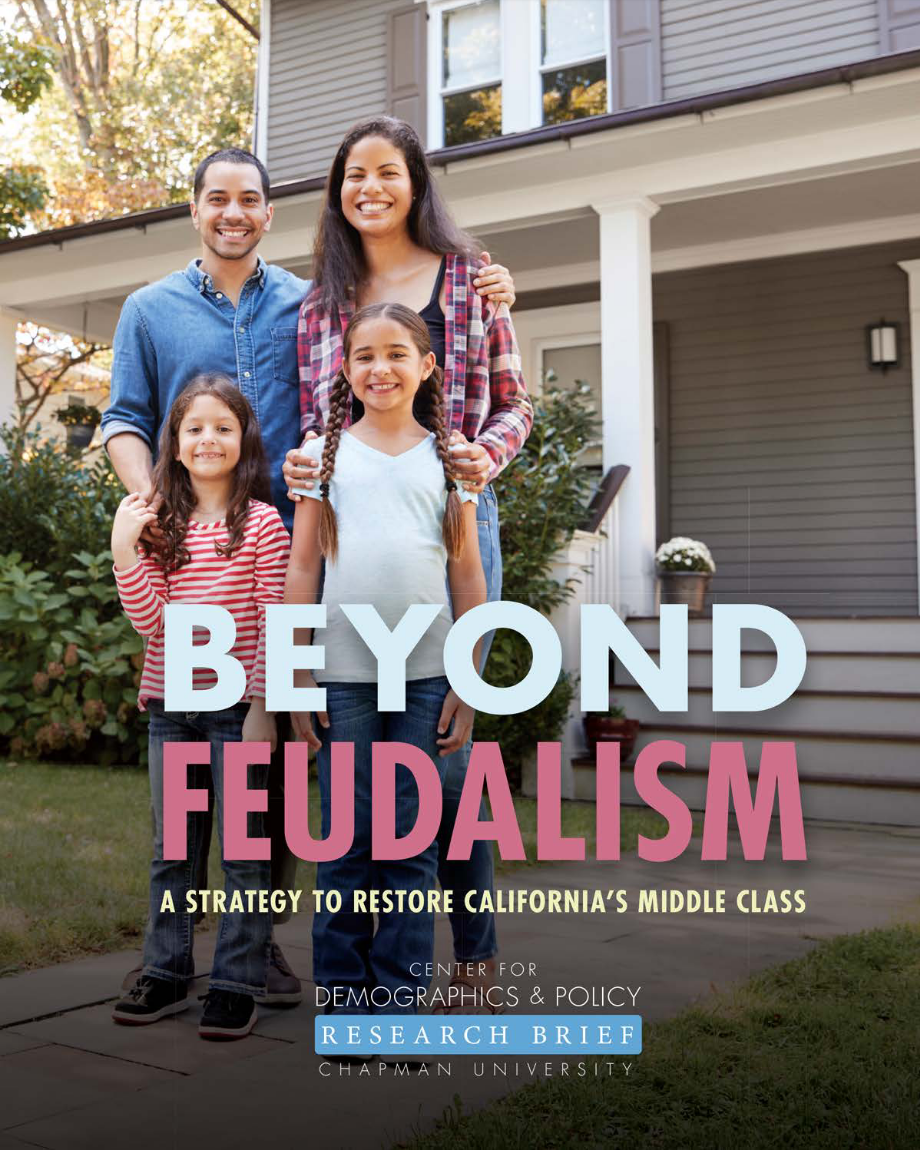“No Bourgeois, No Democracy”
— Barrington Moore
Protecting and fighting for the middle class regularly dominates rhetoric on the Right and Left. Yet activists on both sides now often seek to undermine single-family home ownership, the linchpin of middle-class aspiration.
The current drive to outlaw single-family zoning—the one protection homeowners possess against unwanted development—has notched bans in the City of Minneapolis and the state of Oregon, with California not far behind. Advocates have tapped an odd alliance of progressives and libertarians. Essentially, it marries two inflexible ideologies, in principle diametrically opposed, but neither of which see housing as a critical element of family and community. In its stead, the Left seeks to place the state in charge, while libertarians bow instinctively to any de-regulatory step they see as increasing “freedom and choice.”
Although couched in noble sentiments, both approaches are fundamentally hostile to both middle- and working-class aspirations. Without a home, the new generation—including minorities—will face a “formidable challenge” in boosting their worth. Property remains key to financial security: Homes today account for roughly two-thirds of the wealth of middle-income Americans while home owners have a median net worth more than 40 times that of renters, according to the Census Bureau. Equally important, a shift from home ownership would also weaken the basis of democracy. Since ancient times, republican institutions have rested on the firmament of dispersed property ownership.
An Odd Time for More Density
The push for ever-greater density and against suburban home ownership could not come at a less propitious time. Even before the pandemic, big cities like New York, Los Angeles, and Chicago were losing population. Since 2010, despite all the talk of a massive “return to the city,” suburbs and exurbs account for about 90% of all metropolitan-area growth. Millennials, often seen as an urban generation, have fueled population growth in the suburbs since 2010.
Millennials have had a hard time buying homes—among post-college millennials (25-34), ownership has dropped from 45.4% in 2000 to 37.0% in 2016, a drop of 18% according to Census Bureau data—but three-quarters want single-family detached houses, according a 2019 report on home buyer preferences by the National Association of Homebuilders. A 2018 Apartment List survey found that 80% of millennials dream of home ownership. Among those under 35 who do buy homes, four-fifths choose single-family detached houses.
This shift has been greatly accelerated by the pandemic, and could gain even more momentum from the rising crime and disorder in many of our core cities. Pew reports roughly one in four Americans either moved on account of COVID-19 or knew someone who did so, with the largest percentages for young people under 30. Since 2018, according to Gallup, the percentage of Americans saying they want to live in cities dropped 55%, down to barely 13%. Rather than the much-ballyhooed “back to the city” movement, we are entering what Zillow describes as “a great reshuffling” to suburbs, smaller cities, and less expensive states. Even non-metro areas, for the first time in over a decade, are beginning to gain population.
The rise of online work is likely to accelerate the trend. Stanford economist Nicholas Bloom projects we will see telecommuting increase from 5% of the workforce before the pandemic to something closer to 20%. More important still, most people now working from home express a preference—some 60% according to Gallup—to do so for the foreseeable future. Even when offices opened early this summer in New York, real estate brokers report, most workers refused to return. And now developers, like KB Homes, are adding home offices to their newest offerings.
These trends will be reinforced by shifts in job markets. A new survey by the Site Selectors guild suggests that only 10% of companies are looking to expand in large cities, one sixth as many as choose suburbs, and a third of those who favor rural areas. Meanwhile major office and residential complexes are being downsized, cancelled, or hit with major price reductions in cities from Chicago and New York to Los Angeles and San Francisco.
Read the rest of this essay on the American Mind.
Joel Kotkin is the author of
The Coming of Neo-Feudalism: A Warning to the Global Middle Class. He is the Presidential Fellow in Urban Futures at Chapman University and Executive Director for Urban Reform Institute. Learn more at
joelkotkin.com and follow him on Twitter
@joelkotkin.
Photo credit: Taxiarchos228 via Wikimedia under CC 3.0 License.

 In this new report,
In this new report,